A Comprehensive Sleep Guide for People With Mental Health Illnesses
by | Last Updated
Almost 20% of the American adult population suffer from mental illnesses.
Each of them has to deal with different symptoms, some of which make it almost impossible to get a restful sleep.
But here’s the good news:
Getting a good night’s sleep is possible even when suffering from a mental illness. You just need to know a few tricks and methods.
Today, we are going to look at some of the most common health conditions and find out how to sleep better even when dealing with them.
Quick Links
Contents
- Quick Links
- Sleep and Mental Health: How Do They Affect Each Other?
- Sleep Deprivation: Male and Female Sides of the Story
- Depression and Sleep
- OCD (Obsessive-Compulsive Disorder) and Sleep
- Anxiety Disorder and Sleep
- Autism Spectrum Disorder and Sleep
- Schizophrenia and Sleep
- Attention Deficit Hyperactivity Disorder and Sleep
- Bipolar Disorder and Sleep
- Conclusion
- Additional Resources
Sleep and Mental Health: How Do They Affect Each Other?
Mental conditions and sleep are correlated. Even more, they influence each other, which might make the treatment a bit more challenging. Scientists have yet to find out how exactly our brain connects mental illnesses and sleep, but one thing we know for sure: one is linked to another and these two conditions have a bi-directional influence on each other.
“One in five adults in America are currently suffering from a mental illness. Almost half of them aren’t receiving any treatment.”
Let’s start with the sleep and, to be more exact, the lack of it. Here’s what symptoms and side effects sleep-deprived people may experience (even the ones who don’t suffer from any mental condition):
- Lack of sleep affects our mood and ability to concentrate.
 The thing is, the brain “recharges” and restores its functions during the REM cycle. When the cycle is disrupted, we don’t get a restful sleep. As a consequence, we get mood swings, irritability, inability to process the information effectively, and even problems regulating our emotions.
The thing is, the brain “recharges” and restores its functions during the REM cycle. When the cycle is disrupted, we don’t get a restful sleep. As a consequence, we get mood swings, irritability, inability to process the information effectively, and even problems regulating our emotions. - Severe sleep deprivation can lead to paranoia, depression, and hallucinations.
- Sleep deprivation can increase the risk in healthy people of developing certain mental illnesses.
- People who don’t get enough sleep experience more negative emotions, thoughts, and even melancholy.
- Sleep issues can make the mental illness recovery process slower and more challenging.
- Insomnia may cause issues with emotion regulation, which, consequently, can enhance certain mental disease symptoms.
Source: https://www.huffpost.com/entry/americans-arent-getting-enough-sleep_n_56c61306e4b0b40245c9687b
Now, when trying to connect sleep issues and mental health problems, the former can actually be the symptom of the latter. And while each case is individual, there are some common tendencies concerning mental health and sleep:
- People who are dealing with mental illnesses are more likely to experience sleep deprivation and other sleep issues.
- Treating sleep disorders can actually reduce the symptoms of a mental illness (or at least make them milder).
- People who suffer from anxiety disorders tend to have difficulties falling asleep because of the overwhelming amount of thoughts and the feeling of worry.
- Sleep issues are prevalent in people who suffer from depression, bipolar disorder, psychosis, anxiety, schizophrenia, and a number of other mental health conditions.
It is obvious that sleep disorders and mental illnesses go hand in hand. Scientists keep studying the correlation. So, maybe in the future, we will be able to treat the symptoms of both simultaneously. In the meantime, while there’s no magical pill for all the issues, there are some things that people with mental illnesses can do in order to sleep better.
“While a lot of people with mental illnesses suffer from insomnia, many also experience hypersomnia, which simply means sleeping too much. Oversleeping happens to around 50% of people who suffer from depression.”
Sleep Deprivation: Male and Female Sides of the Story
While we’re all equal, women and men are rather different when it comes to sleep. The thing is, because male and female brains work differently, the two genders are affected by sleep deprivation differently.
Now, the main difference between a male and female brain is that the latter requires more energy and, consequently, more sleep. Women brains spend more energy because they tend to multitask much more than men usually do. This means female brains need more sleep to restore and regenerate. This also means that females might experience more sleep issues (or stronger symptoms of sleep deprivation).
For instance, women tend to be more irritable, upset, or even hostile or depressed in the morning after having a sleepless night. Statistically, females suffer from insomnia more often than men (although males are more prone to sleep apnea). Additionally, women are more likely to have high blood pressure or suffer from a heart disease because of the lack of healthy sleep.
All the previously mentioned points do not mean that it is more important for women to get adequate sleep. Both genders require rest and enough hours of sleep. The previous data just shows that oftentimes women require longer sleeping hours and tend to experience some of the symptoms to a higher extent.
“While scientists haven’t yet studied thoroughly the connection between mental illnesses and sleep, it is believed that a healthy sleep hygiene is able to help patients foster both emotional and mental resilience, which can help reduce the severity of some of the symptoms. Just like that, a poor sleep hygiene can have a negative effect on a person’s emotional and mental state and vulnerability.”
Depression and Sleep
It is estimated that more than 16 million adults suffer from depression in America. This mental disorder is accompanied by a number of different symptoms, which vary depending on each individual case. However, this condition isn’t fully studied or understood, neither are the causes of it. Scientists believe that depression occurs when there’s a chemical imbalance in the brain.
This is a common disorder that can change the way you feel, think, perceive yourself and the world around you, etc. Clinical depression is a serious condition. It lasts longer and feels worse than just being upset or struggling with life’s setbacks. The most common symptoms of depression include:
- feeling hopeless and helpless;
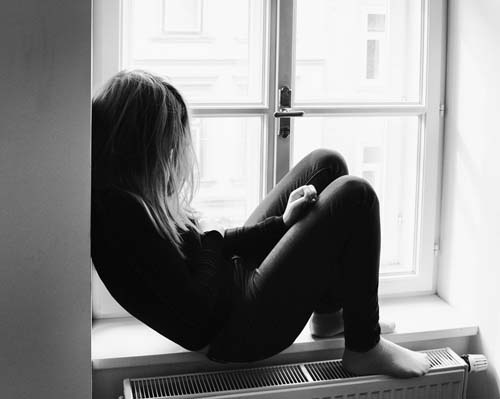
- appetite changes;
- weight loss or gain;
- loss of interest in the usual activities;
- irritability, anger, or even hostility;
- constant self-loathing;
- inability to focus or concentrate;
- loss of energy;
- unexplained pains;
- reckless behavior;
- fatigue;
- trouble making decisions;
- memory issues;
- suicidal thoughts (and, in worse cases, attempts);
- and, of course, sleep issues.
“Inconsistent sleep or disrupted cycles can turn into triggers for certain mental illnesses. Many different mental issues are actually caused by sleep deprivation, not the other way around.”
Now, when it comes to depression-related sleep problems, they tend to reveal themselves differently in different patients. However, the most common issues associated with this condition include:
- Insomnia. Insomnia means difficulty falling asleep or sleeping through the night without waking up. More than 80% of people with depression experience insomnia or some of its symptoms. In general, people who suffer from depression find it hard to fall asleep, spend less time in REM sleep (which is the most restorative part of a sleep cycle), wake up multiple times during the night, and get fewer hours of sleep. Insomnia, while having an impact on the health, also contributes to mood changes. Depression symptoms such as sadness or anger can be enhanced because of insomnia.
- Obstructive sleep apnea. This respiratory disorder causes people to stop breathing (for a moment) during sleep, which results in decreased blood oxygen levels and constant sleep disruption (since the brain has to wake the body up to restore the breathing function). People with depression are prone to this condition.
- Hypersomnia. Hypersomnia means extreme oversleeping, which is the opposite of insomnia. Hypersomnia occurs in people with depression, although it is more common for young adults than older patients.
- Restless legs syndrome. When suffering from this condition, people experience a strong pricking feeling in their lower limbs when lying down. A person with a restless legs syndrome (RLS) would move their legs constantly to “shake” that feeling off. Obviously, this disrupts their sleep greatly.
Now, when it comes to sleep issues and depression, treating the symptoms of both conditions may be challenging. However, by trying different methods, you can at least decrease the severity of the symptoms (or even get rid of some of them). The most common ways to deal with sleep problems that are associated with depression include:
- Psychotherapy. This method can help with both sleep issues and depression. The most popular kind of psychotherapy for depressed people is the cognitive-behavioral one. It helps people figure out which destructive or negative thoughts contribute to their depression, as well as learn how to respond to those thoughts. As a result, a person becomes calmer and more at peace with themselves, which contributes to the sleep quality as well.
- Light therapy. This method is the most effective when it comes to treating insomnia or hypersomnia. Light therapy implies using a special light box that mimics the natural daylight. Patients use it in the mornings to wake up easier (to fight hypersomnia) and in the evening to signal the brain that it’s time to go to sleep (by stimulating it with light and then taking the stimulant away to show that it’s nighttime already).
- Medication. When your body cannot deal with its health conditions on its own, your doctor may prescribe certain drugs to reduce the symptoms. The most common medicine type is the antidepressants, specifically – selective serotonin reuptake inhibitors. They work to help with both depression symptoms and sleep issues, including the restless legs syndrome.
- CPAP therapy. This method involves using a continuous positive airway pressure device (CPAP). This form of therapy is usually applied when a patient is suffering from sleep apnea and insomnia. The device delivers the air to patient’s lungs using an internal fan and a pressure system.
- Muscle relaxants. Working the best on the restless legs syndrome, these medical aids help patients relax completely and fall asleep more easily.
OCD (Obsessive-Compulsive Disorder) and Sleep
Obsessive-compulsive disorder keeps a person in a vicious cycle of specific thoughts (obsessions) and behaviors (compulsions). Obsessions are usually presented in a form of intrusive, unwanted thoughts that urge or trigger a person intensely. At the same time, compulsions are actions and behaviors that a person engages in to get rid of the obsessive thoughts.
The most common symptoms of this condition include:
- ungrounded fears (for instance, of germs or making a mistake);
- excessive doubts;
- compulsive washing (washing hands or taking a shower countless times a day);
- counting;
- repeated checking (for instance, to see whether the appliances are turned off);
- compulsive collecting;
- hoarding;
- arranging things in a particular order at all times;
- aggressive impulses;
- thoughts about hurting someone;
- persistent sexual thoughts;
- repeated cleaning.
“Our brain performs many, many functions and tasks. One of them is analyzing the outside stimuli and potential threats. When the brain is sleep-deprived, it becomes too sensitive to the outside factors and may be incapable of rational judging. Therefore, the brain perceives the surrounding as potential threats much often than it should do, which can cause anxiety, panic attacks, and even violent behavior.”
OCD is a complex medical condition. It reveals itself differently in different patients. However, while the symptoms may vary, sleep issues are common for many people with this disorder. Generally, people with OCD tend to get less amount of sleep overall. Some other sleep problems they may experience include:
- insomnia;
- disrupted sleep;
- delayed sleep onset and offset (which is a circadian rhythm disorder when a person cannot fall asleep before the morning hours).
When suffering from OCD, a patient cannot sleep well because of those unwanted, intrusive, overwhelming thoughts. Therefore, to deal with OCD-related sleep problems, one needs to treat the OCD symptoms as well. To do that, you can try one of the following methods:
- Medication. Again, the most common type is the selective serotonin reuptake inhibitors. They work as antidepressants, helping patients with OCD experience less intrusive thoughts and compulsive behaviors that prevent them from getting a healthy sleep.
- Psychological therapy. It may include the most common types: CBT (cognitive behavioral therapy) and ERP (exposure and response prevention). Both of these therapy kinds help patients learn how to respond to their obsessive triggers differently (instead of showing compulsive behavior).
- Meditation. Mindfulness-based meditation exercises help people deal with OCD symptoms, emotion regulation, cognitive impulses, and so on. Such exercises do not fight or satisfy those unwanted thoughts and obsessions. Instead, meditation helps patients accept those thoughts and keep living and functioning with them without falling into any compulsive behavior.
Anxiety Disorder and Sleep
Anxiety disorder is the most widespread mental illness in the US. More than 18% of the total adult population are affected by this condition. Anxiety disorder is a mental state that implies a person constantly experiencing the feelings of worry, fear, or overwhelming anxiety.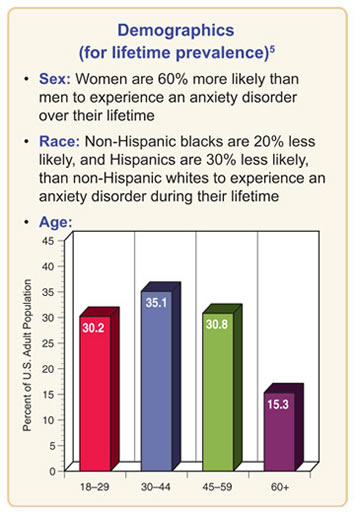
Anxiety disorder is a general term for a number of different subcategories, including panic disorder, social anxiety, phobias, etc. The symptoms differ depending on each patient, but the most common ones include:
- constant feeling of uneasiness;
- fear or panic;
- shortness of breath;
- increased heartbeat;
- sweaty, numb, cold, or tingling feet and hands;
- not being able to remain still or calm;
- dry mouth;
- tense muscles;
- constantly clenched jaw;
- nausea;
- sleep problems.
Now, because anxiety disorders are associated with high levels of stress that a person experiences, this results in frequent sleep issues. Usually, anxiety patients deal with the following sleep-related conditions:
- Insomnia. Anxiety involves all-consuming, stressful thoughts that prevent people from falling asleep normally or staying asleep during the night.
- Hypersomnia. The opposite of insomnia, hypersomnia implies unhealthy oversleeping. This is a body’s response to stress and exhaustion, especially when a patient has troubles falling asleep in the evening because of the anxious thoughts.
- Nocturnal panic attacks. This condition is the most common for people with a panic disorder but can be observed in other anxiety patients as well. Nocturnal panic attacks occur during the non-REM sleep phase and make a person wake up unexpectedly from fear or extreme panic. Oftentimes, these nightmares are accompanied by increased heart rate, perspiration, heavy breathing, and chest pain.
- Nightmares. This sleep issue can be observed even in healthy people, but it’s much more frequent in anxiety patients. It involves a person experiencing intense, vivid dreams with a traumatic or shocking content.
“Insomnia is closely linked to anxiety disorder. The thing is, this disorder causes people to experience worry, anxious thoughts, phobia triggers, constant anxiety, and the feeling of being overwhelmed. Obviously, such symptoms make it really hard to get a healthy amount of sleep, which oftentimes leads to severe insomnia.”
Again, because this condition’s symptoms directly influence a patient’s sleep (and might be fully responsible for some of those issues), the treatment should be directed towards both anxiety disorder and sleep problems. The most common methods are:
- Psychotherapy, especially cognitive-behavioral therapy, which is applied to many other mental health issues.
- Medication, including antidepressants, sleep aids, and relaxants (not used all at once, of course, but prescribed depending on each individual’s specific symptoms).
- Hypnosis, which is mostly used as an extra component of psychotherapy.
Autism Spectrum Disorder and Sleep
Autism is a developments disorder, which affects a person’s behavior and communication. This condition is called a developmental one because its signs and symptoms appear in the first years of life. This disorder affects the brain and influences the way a person perceives the outside world and the people in it. ASD also affects the way a patient socializes and communicates with others, which can lead to various complications in one’s social life.
Now, the number of possible ASD symptoms is overwhelming. Different patients experience different issues, and the symptoms can vary greatly from person to person. However, the most common and widespread ones are:
- difficulties making or keeping eye contact;
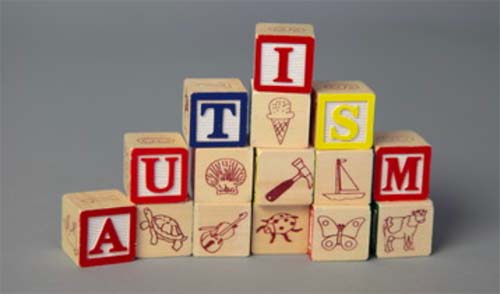
- having troubles understanding someone else’s point of view;
- failing to or taking too long to respond to someone;
- tending not to look at people (or listen to them);
- having difficulties keeping up with conversations;
- having an unusual tone of voice;
- getting upset by routine changes (even slight ones);
- repeating specific behaviors;
- being overly focused on specific interests (for instance, moving objects);
- irritability;
- sleep issues.
It is worth mentioning that, despite experiencing many problems and symptoms, ASD patients also have specific strengths. For instance, they are great in science, math, art, or music. Additionally, they are strong auditory and visual learners and can remember things in detail for long periods of time.
Unfortunately, sleep issues are common for this condition. The most widespread is, of course, insomnia. People with ASD take longer to fall asleep. Additionally, their sleep is less restful and restorative because they tend to spend less time in the REM phase.
To help them deal with such issues, the following treatment options are usually suggested by doctors:
- Medication (including melatonin supplements).
- Psychological (mainly behavioral) therapy.
- Adopting a healthy sleep hygiene (sticking to a certain sleep regimen, creating an appropriate sleeping environment, etc.).
- Light therapy.
Schizophrenia and Sleep
Because schizophrenia has a very wide range of symptoms and alters the way a patient perceives reality, it is quite challenging to treat. However, it can be managed successfully using certain methods and techniques.
Now, schizophrenia makes it hard to distinguish between reality and illusion. This condition affects the way people think, act, function, treat other people, manage emotions, and perceive the world around them. The most common symptoms of schizophrenia include:
- social withdrawal or depression;
- change in one’s appearance or personal hygiene;
- hostility, inadequate reaction to criticism;
- inability to express joy or sadness;
- inappropriate crying or laughter;
- inability to concentrate;
- memory issues;
- sleep issues;
- strange way of speaking or use of words;
- irrational statements;
- delusions;
- impulsive behavior;
- lack of interest in one’s environment;
- constant feeling of being watched;
- change in personality;
- bizarre behavior;
- obsession with religion;
- hallucinations;
- emotional flatness;
- extreme apathy.
“Many people have severe sleep deprivation without even realizing it. They oftentimes think that it’s just stress or any other reason. However, if you constantly feel tired, experience micro sleeps during the day, cannot go through your day without caffeine, feel drowsiness and fatigue, don’t wake up refreshed, or experience memory issues, you might be sleep deprived.”
Each of these symptoms can appear at different stages of the disorder’s development. However, sleep issues are the first warning signs. The most common ones include:
- insomnia;
- inconsistent sleep volumes (extreme leaps from insomnia to hypersomnia);
- irregular or abnormal sleep patterns (when a person doesn’t have clear circadian rhythms and falls asleep at different points during the day and night).
The most common treatment for the mentioned issues is taking antipsychotics, which help normalize patients’ sleep patterns. Psychotherapy is also a widespread method, but it is typically combined with medication.
Attention Deficit Hyperactivity Disorder and Sleep
ADHD (Attention Deficit Hyperactivity Disorder) is a neurodevelopmental condition that interferes with a person’s ability to regulate their attention and control their impulses. Unfortunately, this disorder cannot be cured (but can be managed).
Generally, the symptoms of ADHD can be divided into two groups: inattentiveness-related and hyperactivity/impulsiveness-related. Now, inattentiveness symptoms include:
- being easily distracted;
- having a short attention span;
- being forgetful;
- losing things;
- careless behavior;
- inability to listen carefully to (or carry out) instructions;
- inability to stick to certain tasks or regimens;
- constantly changing activities or tasks.
As for the hyperactivity/impulsiveness-related symptoms, they typically include:
- excessive talking or physical movement;
- little or no sense of danger;
- inability to concentrate;
- fidgeting;
- inability to sit still (especially in a calm environment);
- acting without thinking;
- interrupting other people constantly;
- inability to wait for one’s turn;
- extreme impatience;
- poor organizational skills;
- edginess.
The symptoms of ADHD may vary depending on each individual case. Some patients experience only separate symptoms while others have to deal with combinations of different disorder signs. Sleep issues are also common for numerous ADHD patients. They are typically prone to the following:
- insomnia;
- sleep apnea;
- daytime sleepiness;
- periodic limb movement disorder (which involves constant kicking and moving during the non-REM sleep phase);
- restless legs syndrome.
There are many ways to deal with ADHD-related sleep issues, and not all of them may work for different patients. It is important to try various methods and maybe even mix and combine them in order to get the best results. The most common methods include:
- Medication (especially stimulants that normalize the brain chemicals production and, consequently, regulate the sleep cycles better).
- Psychotherapy (especially behavioral therapy).
- Using a weighted blanket (it may help with the restless legs syndrome, periodic limb moving disorder, and simply create a more relaxed sleeping environment).
Bipolar Disorder and Sleep
Bipolar disorder is a condition that affects one’s mood and makes people leap from one extreme feeling to another. This mental illness involves intense emotional changes and swings, such as highs (manias, for example) and lows (depression).
There are different bipolar disorder types, each of which has slight variations in symptoms. But generally, they all share some common signs and symptoms that can be divided into two large groups: depression-related and mania-related.
Depression symptoms include:
- constantly experiencing the feeling of sadness, hopelessness, emptiness, etc.;
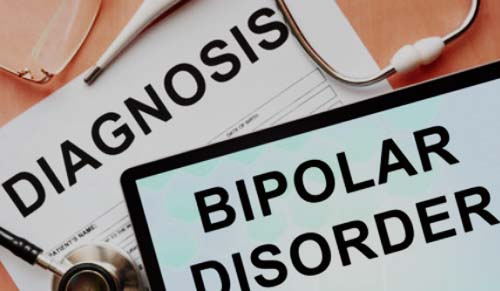
- fatigue and loss of energy;
- suicidal thoughts (or even attempts);
- loss of interest;
- sudden weight loss or gain;
- change of appetite;
- feeling no pleasure in all activities (or almost all);
- inability to concentrate;
- indecisiveness;
- restlessness,
- sleep issues;
- feeling of guilt;
- irritability.
As for the mania-related symptoms, they may include:
- being abnormally upbeat;
- increased energy;
- extreme talkativeness;
- distractibility;
- increased self-confidence;
- racing thoughts;
- poor decision-making;
- decreased need for sleep;
- feeling unreasonably overjoyed;
- loss of appetite;
- being easily irritated;
- illogical thinking;
- delusions or even hallucinations.
“Because many sleep deprivation symptoms can also be linked to certain mental illnesses, sometimes it is hard to figure out what seems to be the cause of those symptoms. Therefore, don’t hesitate to see a doctor and tell him or her about your sleep problems. Maybe they can be fixed with a healthier sleep hygiene. But if things are more serious, you might require a new treatment for your mental disorder.”
Bipolar disorder also influences a person’s ability to get a healthy, restful sleep. The most common sleep issues people with this condition can face include:
- insomnia;
- hypersomnia;
- sleeplessness (when a person simply doesn’t feel like sleeping);
- disrupted sleep patterns;
- sleep apnea;
- delayed sleep phase syndrome (which is characterized by delayed circadian rhythms);
- lower sleep quality (which means a person doesn’t get enough of restorative sleep).
Because the sleep issues are caused by the symptoms of this disorder, the treatment usually involves methods directed towards managing the bipolar disorder primarily. They may involve:
- Medication (especially mood stabilizers to manage depression and manias).
- Psychotherapy (including the interpersonal and social rhythm therapy, which is directed towards stabilization of such daily routines as sleeping and mealtimes).
Conclusion
It is clear that some mental illnesses bring sleep issues with them when they strike. And while symptoms may vary and reveal themselves to a different extent in different people, there are ways to handle those symptoms. Just keep in mind that everyone is different, so it might be better to try various methods until you find something that works great for you.
Additional Resources
- https://www.medicalnewstoday.com/articles/307334.php – Sleep deprivation, symptoms, causes, treatments, and more (by Kathleen Davis).
- http://sleepeducation.org/essentials-in-sleep/healthy-sleep-habits – Healthy sleep habits and how they can be achieved (resource provided by the American Academy of Sleep Medicine).
- http://healthysleep.med.harvard.edu/healthy/matters/consequences – The effects of sleep deprivation (A resource from the Division of Sleep Medicine at Harvard Medical School).
- https://www.psychiatry.org/patients-families/depression/what-is-depression – More about depression: symptoms, risk factors, treatment, etc. (by the American Psychiatric Association).
- https://depression.org.nz/is-it-depression-anxiety/self-test/depression-test/ – Depression self-test.
- https://www.nimh.nih.gov/health/topics/obsessive-compulsive-disorder-ocd/index.shtml – Obsessive-Compulsive Disorder explained (by the National Institute of Mental Health).
- https://www.psychguides.com/guides/how-to-find-help-treating-obsessive-compulsive-disorder/ – Ways to help someone with OCD.
- https://www.verywellhealth.com/generalized-anxiety-disorder-and-the-effects-on-sleep-3014678 – The link between anxiety disorders and sleep issues (by Brandon Peters, MD).
- http://www.mentalhealthamerica.net/conditions/schizophrenia – More about schizophrenia: causes, symptoms, treatment, etc. by Mental Health America.
- https://www.neurocorecenters.com/blog/how-sleep-affects-mental-health – More about mental health and sleep (by William Dodson).

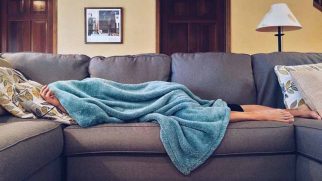
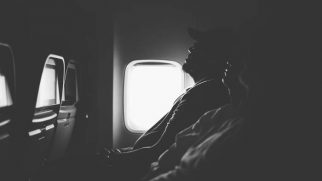
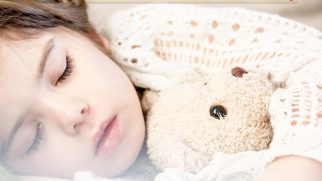
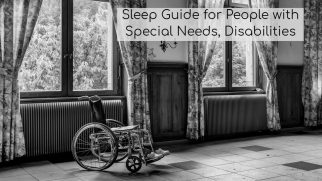
No Comments